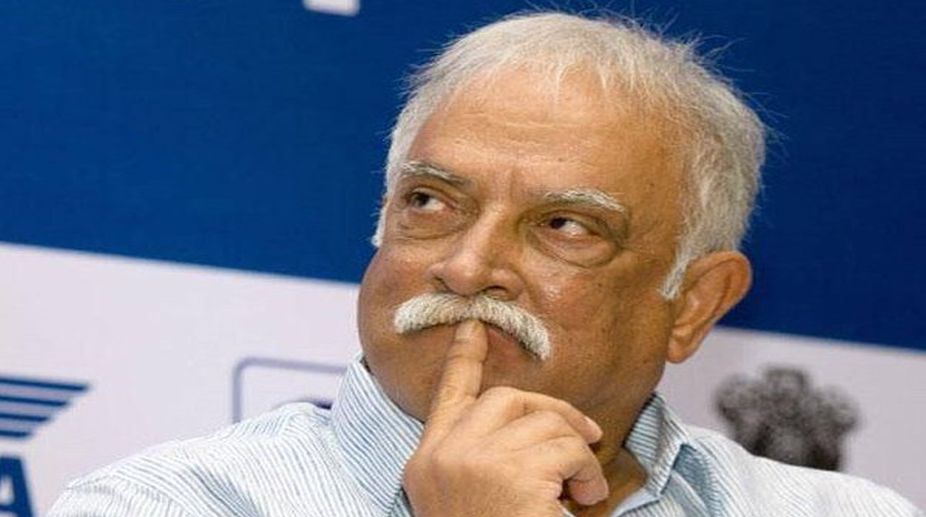CISF head constable shoots herself to death with service revolver at IGIA
A 37-year-old head constable of the Central Industrial Security Force (CISF) died allegedly by shooting herself with a service revolver, the police said on Friday.

Aviation Minister Ashok Gajapathi Raju (PHOTO: Twitter)
Expressing disagreement over the Central Industrial Security Force's insistence on stamping hand baggage for security, Aviation Minister Ashok Gajapathi Raju on Thursday quipped that the best way to check hijack is to bar everyone from entering the airport.
Stressing on the need to move with the times on security measures and keep them "non-obtrusive and meaningful", he said the best security would be not allowing anyone to come to airports as that would ensure "there will never be a hijack but there won't be any civil aviation activity either".
Advertisement
Raju said the "CISF is a police force" and it is the BCAS (Bureau of Civil Aviation Security) that sets aviation security standards that everybody ultimately has to follow. He said "an impractical security thing" can be another problem.
Advertisement
He, however, added that the CISF, which is responsible for security at major airports, would also voice their experiences and it is "better to be safe than to be sorry".
The BCAS, which comes under the Civil Aviation Ministry, had issued a circular on 23 February to immediately do away with the practice of putting security stamp on the hand baggage tags at seven major airports in the country.
However, the decision had to be deferred following security concerns raised by the CISF. In the first official comments from the Ministry on this issue, Raju said everybody has to follow BCAS when it comes to aviation security standards.
He said, "Safety and security cannot be compromised but security should be non-obtrusive and meaningful. Otherwise commercial activity will not happen. This is what it is."
The decision to stay the BCAS order related to stamping of hand baggage was taken on 2 March during a high-level meeting between Civil Aviation and Home Ministries.
Noting that civil aviation works on a very different footing, Raju said what was relevant for security at one point of time might become irrelevant on another occasion.
Advertisement